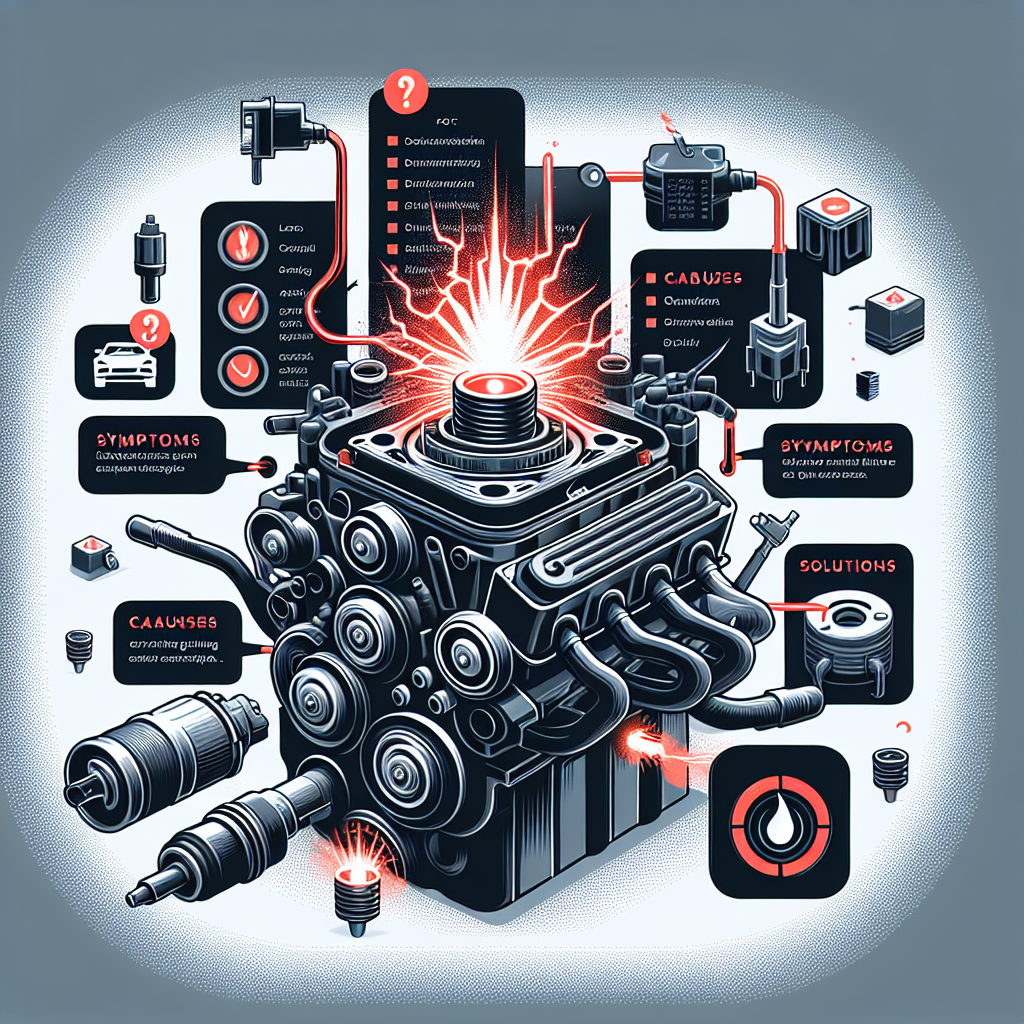Understanding the ins and outs of your vehicle can save you both time and money in the long run. One critical component of your engine’s ignition system is the ignition coil. While small in size, it performs a crucial role in the combustion process. However, ignition coils can fail, causing a variety of issues. In this article, we’ll explore the symptoms, causes, and solutions for ignition coil failures to help you keep your vehicle running smoothly.
Symptoms of Ignition Coil Failures
-
Engine Misfires: One of the primary indicators that an ignition coil may be failing is an engine misfire. The ignition coil converts voltage from the battery to create a spark in the spark plugs, igniting the fuel. When it cannot send the correct voltage, the engine misfires.
-
Poor Fuel Economy: If your vehicle consumes more fuel than usual, a faulty ignition coil might be to blame. An inefficient spark means incomplete combustion, which leads to more fuel consumption.
-
Check Engine Light: Modern vehicles are equipped with sensors that detect various issues, including ignition coil problems. If the check engine light comes on, it’s important to run a diagnostic test to identify the root cause.
-
Hard Starts and Stalling: Difficulty turning your car on or intermittent stalling can also be signs of ignition coil failure. When the coil can’t generate the necessary spark, the engine struggles to start or keep running smoothly.
- Rough Idling: An idling engine that feels rough and shaky can also indicate a problem with the ignition coil.
Causes of Ignition Coil Failures
-
Heat and Vibration: The constant exposure to high engine temperatures and vibrations can cause ignition coils to wear out over time. Heat can cause the coil windings to expand and contracts, leading to failure.
-
Overloading: The ignition coil works hard to produce the necessary spark. Over time, wear and tear can reduce its efficiency. Using a spark plug with the wrong gap setting can exacerbate this problem, forcing the ignition coil to work harder.
-
Electrical Problems: Voltage overloads or faulty wiring can lead to premature ignition coil failure. An irregular voltage supply can damage the coil’s internal components.
-
Oil or Water Contamination: Ignition coils need to stay dry to function properly. Oil leaks or water ingress can cause them to fail. Routine maintenance can help you catch and fix leaks before they cause significant damage.
- Aging: Simply put, ignition coils have a finite lifespan. Over time, even in ideal conditions, they will wear out and need to be replaced.
Solutions to Ignition Coil Failures
-
Regular Maintenance: One of the best ways to prevent ignition coil failure is through regular maintenance. Always follow your vehicle’s maintenance schedule for tasks like replacing spark plugs and changing engine oil.
-
Quality Replacement Parts: If an ignition coil does fail, replacing it with a high-quality part is crucial. Always opt for OEM (original equipment manufacturer) parts, or well-known aftermarket brands to ensure reliability and longevity.
-
Check for Leaks: Routinely inspect your engine for oil or coolant leaks. Catching these issues early can save your ignition coil from damage.
-
Electrical System Check: A thorough check of your vehicle’s electrical system can prevent voltage irregularities that can damage the ignition coil. Ensure battery connections are tight and free from corrosion.
- Professional Diagnostic: If you suspect an ignition coil problem, have a professional run a diagnostic test. Misfires and other symptoms can sometimes be caused by different issues, so a proper diagnosis is essential.
For more detailed information on how to diagnose and repair ignition coil issues, CarTech Research offers an in-depth guide which you might find useful. Regular maintenance and prompt attention to symptoms can help keep your car running at its best, saving you both time and money in the long run.
By understanding the symptoms, causes, and solutions for ignition coil failures, you can better manage one of your engine’s most important components. This knowledge will help you be proactive, ensuring your vehicle remains in optimal condition.

